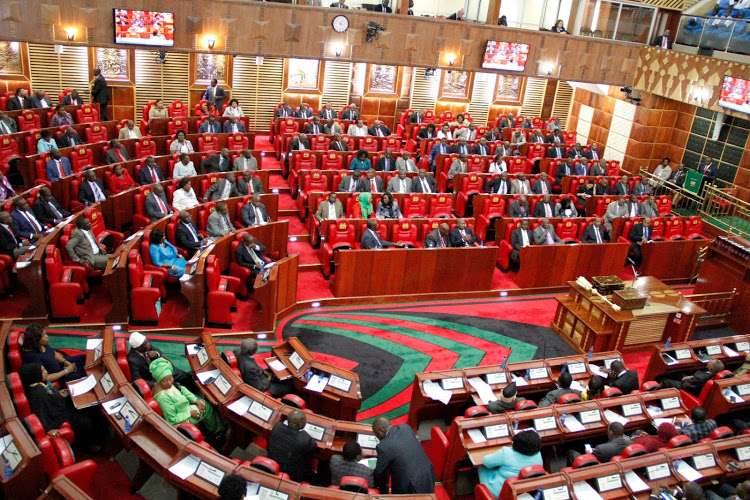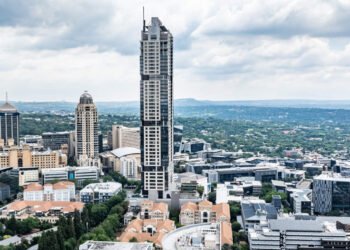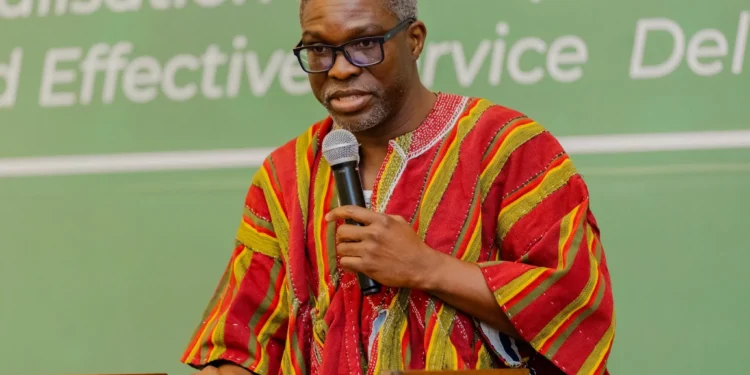Gen-Z-led protests that have caught President William Ruto’s administration by surprise are still underway.
President Ruto, over the weekend, expressed his willingness to engage with the demonstrators, lauding their “peaceful” approach.
However, on Tuesday morning, hundreds of demonstrators in Nairobi’s business district were met with a substantial police presence.
Officers in riot gear cordoned off access to parliament, where legislators are currently debating a finance bill featuring contentious tax proposals. The demonstrators, chanting slogans of “We are peaceful,” faced tear gas and rubber bullets from the police.
The nationwide protests, ignited by a cost-of-living crisis, began last week with demands for the finance bill to be scrapped. Parliament is set to vote on the bill by June 30.
Kennedy Sankara, a 26-year-old father, condemned the police’s actions, stating, “There is no criminality in assembling in the streets. They are here brutalizing innocent citizens who are unarmed and only speaking.”
Labeling Ruto’s bill as “draconian,” Sankara accused the authorities of attempting to silence dissent through brutality.
The unrest was not confined to Nairobi; demonstrators also marched in Mombasa, Kisumu, and Ruto’s stronghold, Eldoret, as shown by Kenyan television channels.
Despite the largely peaceful nature of the protests, as acknowledged by Ruto, the Independent Policing Oversight Authority and various rights groups reported two deaths following last Thursday’s demonstrations in Nairobi.
Concerns About Human Rights Violations
Organizations such as Amnesty International Kenya noted that at least 200 people were injured in last week’s protests.
Amnesty International Kenya highlighted the deteriorating state of protest policing, urging the government to uphold the right to assembly. The rights body stated that Kenya is “at a crossroads.”
Despite mass arrests and injuries, the protests’ momentum reflects widespread public dissatisfaction. The organization cautioned that escalating force could result in more fatalities and legal consequences.
Human rights watchdogs have accused the authorities of abducting protesters, a claim supported by the Kenya Human Rights Commission.
These abductions, reportedly carried out by police officers in civilian clothes and unmarked vehicles, often occurred at night. The commission demanded the unconditional release of all those detained.
The demonstrators have also employed unique tactics, such as requesting bars to cease music at midnight on weekends, prompting partygoers to chant “Ruto must go” and “Reject finance bill.”
The protests have garnered support from some Anglican and Catholic church leaders.
The government, grappling with financial constraints, agreed last week to roll back several tax increases.

However, it still plans to raise other taxes, arguing that these measures are essential to replenish state coffers and reduce reliance on external borrowing.
Kenya faces a daunting debt burden, exacerbated by a depreciation of the local currency over the past two years, which has increased the cost of servicing foreign currency loans.
The proposed tax hikes are expected to further strain Kenyans, with well-paying jobs remaining elusive for many young people.
Although the government has scrapped levies on bread, car ownership, and financial and mobile services, the treasury now warns of a 200 billion shilling ($1.56 billion) budget shortfall.
To address this, the government plans to increase fuel prices and export taxes, a move critics argue will exacerbate the already high cost of living in a country grappling with significant inflation.
Kenya boasts one of East Africa’s most dynamic economies, yet a third of its 52 million citizens live in poverty.
The ongoing protests underscore the urgent need for solutions that address both the economic challenges and the public’s demand for fair and just governance.
READ ALSO: Kanayo Criticises ‘Sugar Daddies’ For Funding Actresses























